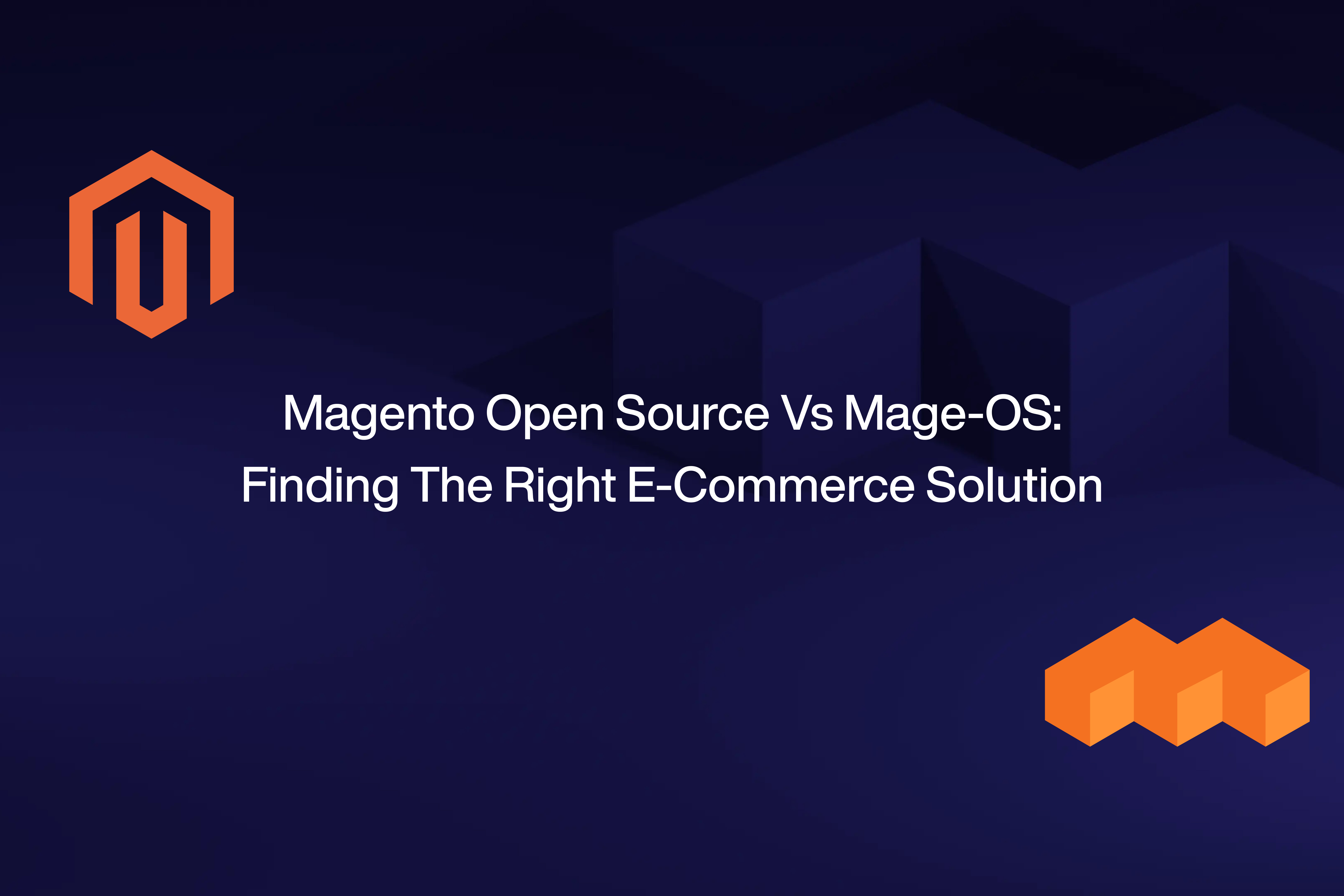Choosing the right platform for your online business is a critical decision. Two names stand out among the numerous options to choose from: Magento Open Source (previously known as Magento Community Edition) and Mage-OS. Although they both have a foundation in the Magento ecosystem, they each have unique traits and serve various purposes. We'll examine the distinctions between Magento Open Source and Mage-OS in this blog post to assist you in selecting the right platform for your online business.
Magento Open Source: An Adobe Classic
Magento Open Source, formerly known as Magento Community Edition, is the open-source version of the Magento 2 platform. As the name suggests, it's open source, meaning you have complete access to the source code, enabling you or your development team to customize it according to your specific requirements. This flexibility is one of Magento Open Source's defining features, making it a preferred choice for businesses with unique needs.
One significant advantage of Magento Open Source is its hosting flexibility. You're free to choose where you want to host your website, allowing you to select a hosting solution that aligns with your budget and performance requirements. However, this freedom also means you're responsible for managing hosting infrastructure and server performance.
Adobe, the company behind Magento, provides support for Magento Open Source in the form of security updates, bug fixes, and minor improvements. This support ensures the platform remains secure and stable. However, one notable aspect is that Adobe no longer gives frequent releases for new features and functionalities in Magento Open Source. Their primary focus has shifted to improving Adobe Commerce, their cloud-based and B2B ecommerce offering.
Mage-OS: Community-Driven Innovation
Mage-OS, short for Mage Operating System, is an independent and community-driven fork of Magento Open Source. It's designed to retain compatibility with Magento Open Source while offering the freedom to innovate and advance the platform. The motivation behind Mage-OS is Adobe's pivot towards enhancing Adobe Commerce, leaving Magento Open Source in a state of stagnation in terms of new features and enhancements.
The core philosophy of Mage-OS is to put the power of development and innovation back into the hands of the community. It aims to breathe new life into Magento Open Source by actively introducing new features and improvements. This approach benefits both merchants and developers by providing a platform that stays current and competitive.
One of the key goals of Mage-OS is to lower the barrier to entry for both merchants and developers. By fostering innovation and making improvements accessible, it aims to create a more inclusive and vibrant ecosystem around the platform.
Magento Open Source Vs. Mage-OS: A Comparative Analysis
To help you make an informed decision, let's compare Magento Open Source and Mage-OS across several crucial aspects:
1. Flexibility and Customization:
- Magento Open Source: It offers unparalleled flexibility with access to the full source code. This makes it suitable for businesses with unique requirements and those seeking deep customization.
- Mage-OS: While retaining Magento's core flexibility, Mage-OS places a stronger emphasis on user-friendly customization. This can be appealing to businesses looking for customization without the complexity of extensive coding.
2. Support and Updates:
- Magento Open Source: Adobe provides regular security updates and bug fixes. However, it no longer introduces new features and functionalities.
- Mage-OS: Mage-OS relies on community-driven efforts for updates and enhancements. It is also planning to introduce new features, keeping the platform innovative and current.
3. Hosting Freedom:
- Magento Open Source: You have complete freedom to choose your hosting provider and infrastructure, allowing you to tailor your hosting to your needs.
- Mage-OS: Like Magento Open Source, Mage-OS offers the same hosting flexibility, giving you control over your hosting environment.
4. Community and Innovation:
- Magento Open Source: While it has a strong community, the lack of new feature releases from Adobe can limit innovation.
- Mage-OS: Mage-OS is driven by a community passionate about advancing the platform, ensuring it remains competitive and evolves with ecommerce trends.
5. Cost:
- Magento Open Source: The platform itself is free, but costs may be associated with hosting, development, and any premium extensions or themes.
- Mage-OS: Mage-OS is also open source and free to use. Costs mainly revolve around hosting and any additional customizations or extensions.
Making the Right Choice
When choosing between Magento Open Source and Mage-OS, consider your specific business needs, budget, and long-term goals. Magento Open Source offers unparalleled flexibility and is an excellent choice for businesses with complex requirements. However, if you're looking for a more user-friendly and actively developed alternative, Mage-OS might be the answer, especially if you want to take advantage of upcoming new features and innovations in the Magento ecosystem.
Ultimately, the decision between Magento Open Source and Mage-OS should align with your unique objectives. Both platforms have their strengths, and the right choice will depend on your business's specific requirements and resources. Whichever path you choose, you'll be stepping into the dynamic world of ecommerce, where innovation and adaptability are key to success.




